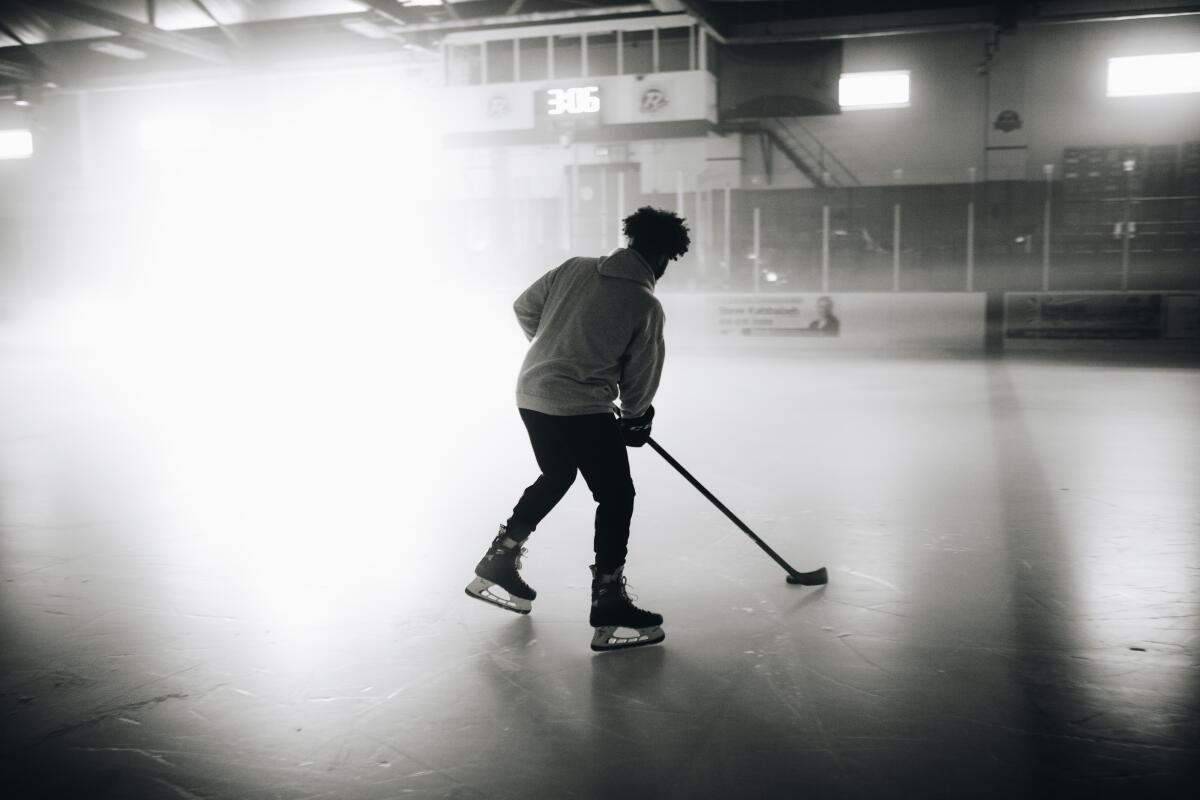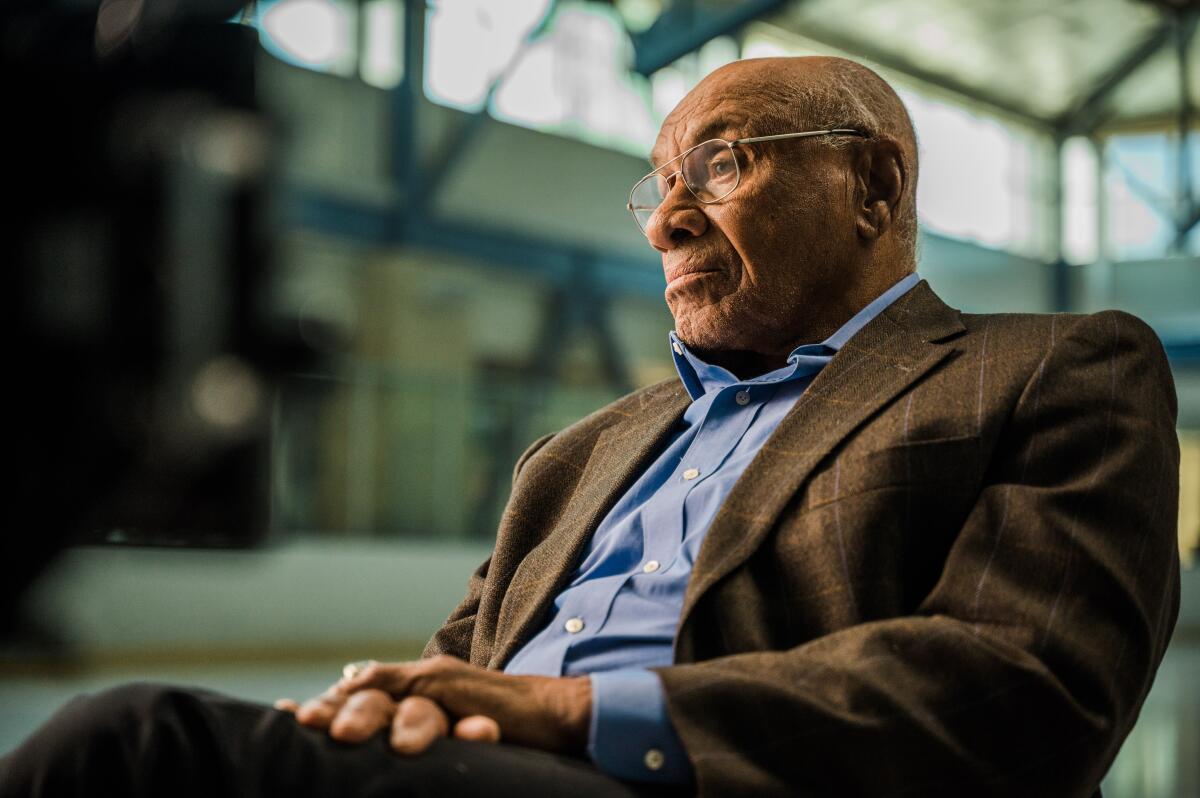Well-sourced hockey doc ‘Black Ice’ throws its weight behind a racial indictment

- Share via
The masks don’t hide everything and the padding doesn’t always protect in Canadian filmmaker Hubert Davis’ chilling, revealing hockey documentary “Black Ice,” which lays bare his country’s national sport as a historically unwelcome space for players of color.
From the racial slurs that former National Hockey League player Akim Aliu spoke about in an explosive 2020 interview, to the forgotten acknowledgments of Black players’ contributions to hockey and the barriers that still stifle growth for anyone who isn’t white, the bitter truths in “Black Ice” paint a sobering picture of a sport with a lot to reckon with, especially in a country that prides itself on embracing its diversity of culture.
The veteran and current players on Davis’ interview list are passionate athletes who’ve never doubted their prowess on the ice or with a team — despite a ridiculously persistent myth correlating skin color with skating know-how, which ignores what is practically a rite of passage for any Canadian kid. But many of them have come to question whether they’ve ever truly belonged. Framed by Davis with a photographic tinge favoring silhouettes, shadows and moodily lit rinks, the interviews hint at a resignation that it’s come to this: being in a movie about the bad stuff instead of the glory. Systemic mistreatment, whether through impersonal decisions or open behavior, is still happening.
Talented women’s all-star and Toronto Six defender Saroya Tinker is one such engaging yet guarded figure, having struggled with isolation, negative body image and anger. She inherited the love of the game from her Jamaican-born father, Harvel, but also the story of his “process” as a player: When he entered hockey rinks, the all-white rosters on the walls were stressful omens, foretelling how much he’d need to add to his on-ice skill set. He’d also have to master an ultra-conscious ability to put others at ease. Professor Debra Thompson, another interviewee, calls this situation “predatory inclusion.”

At the root of an injustice that perpetuates loneliness, exhaustive code-switching and gaslighting is the fact that a thriving Black hockey league existed for decades in Canada, beginning in the 1890s. (The authors of a book about the Colored Hockey League, also called “Black Ice,” are featured here.) This semiprofessional group bolstered segregated Black communities in Canada’s eastern Maritime provinces, while innovating now-treasured parts of the game, including the slap shot and goalies dropping to their knees. Yet none of their top players gained purchase, much less respect, in the media, the white leagues or the halls of fame.
The NHL wouldn’t even sign its first Black player, Willie O’Ree (now an octogenarian and also interviewed here), until 1958. Before that, Herb Carnegie, one of the best players of the 1940s — and one of the best to never play in the NHL — had to endure Toronto Maple Leafs owner Conn Smythe despicably offering $10,000 to anyone “who can turn Carnegie white.” Watching Carnegie in an archived television interview relive that wound is a hard check to the boards. Juxtaposed with examples of today’s players speaking up about a toxic environment, it lends “Black Ice” a thoughtful mix of the infuriating, the celebratory and the cautiously optimistic.
“Black Ice” is also one of the few documentaries that grasps the power of judiciously used re-creations, as when Davis weaves in fragmented scenes of what we understand to be Colored Hockey League players of yesteryear exuberantly competing on a picturesque patch of ice, the images and sounds evoking a moment of undisturbed independence and joy. But also, one senses, a dream of hope for when the sport they adore learns how to nurture and return that love.
'Black Ice'
Rating: R, for language including racial slurs
Running time: 1 hour, 35 minutes
Playing: Now playing at AMC theaters
More to Read
Only good movies
Get the Indie Focus newsletter, Mark Olsen's weekly guide to the world of cinema.
You may occasionally receive promotional content from the Los Angeles Times.










